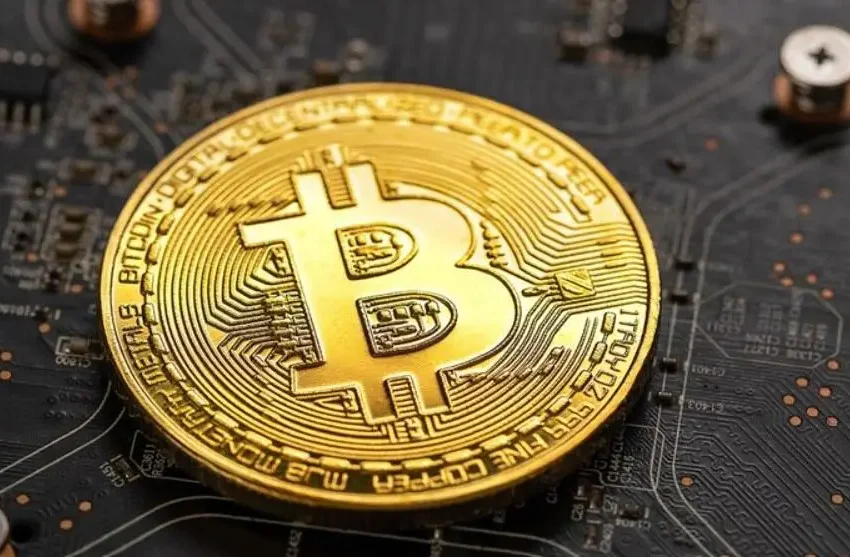FATF Warns Crypto Misuse Fuels Illicit Finance, Urges Nations to
Bitcoin Not Ready for Daily Spending According to Popular Macro Analyst
(Originally posted on : Crypto News – iGaming.org )
Bitcoin may be gaining traction as a long-term store of value, but according to macro analyst Lyn Alden, its day-to-day use as a payment method still has a long way to go. In her latest commentary, Alden explains why BTC is not yet practical for widespread daily spending—and why that might not even matter.
Good to know
- Alden sees Bitcoin more as a store of value than a payment tool.
- Stablecoins currently offer easier short-term payment options.
- Tax laws and volatility make Bitcoin tough to use for everyday purchases.
Some Bitcoin supporters encourage people to spend it more often, hoping it will evolve into a commonly used currency. Alden pushes back on that view. She argues that BTC’s use as a medium of exchange will only grow if it starts solving problems that other payment tools cannot.
“There are some very well-meaning Bitcoin proponents trying to convince Bitcoin holders to spend it more. I don’t particularly view that as a sustainable practice,” Alden says. “Bitcoin is not going to catch on as a charity.”
She points out that for Bitcoin to scale beyond just billions to trillions in annual transaction volume, it needs to be the better choice for spenders or merchants in real-world situations. At the moment, she argues, stablecoins already fill that role for many people dealing with payment blocks, capital controls, or volatility concerns.
New players only. Exclusive 111% Welcome Bonus + 111 Free Spins
Stablecoins, which are tied to fiat currencies, allow users to make low-volatility transactions across borders without needing to worry about Bitcoin’s price swings or the tax implications that come with every BTC transaction in some countries.
BTC as a Global Insurance Policy
Instead of thinking of Bitcoin primarily as a payment tool, Alden highlights its strength as a liquid, portable asset that people can take across borders without needing permission or relying on financial institutions. She refers to Bitcoin’s value as “optionality”—a kind of financial flexibility not found in traditional assets.
“Owning a sound, liquid, fungible, portable store of value that is going through its adoption phase gives the owner some perks, or options, that other assets do not,” she writes.
Those options include the ability to move money privately, even across borders or to recipients who have been blocked from using traditional systems. While most people are not paying their rent or groceries with BTC just yet, they can still convert it when needed—especially in environments where banking systems are fragile or restrictions are in place.







 Bitcoin
Bitcoin  Ethereum
Ethereum  Tether
Tether  XRP
XRP  USDC
USDC  Solana
Solana  TRON
TRON  Dogecoin
Dogecoin  Lido Staked Ether
Lido Staked Ether  Figure Heloc
Figure Heloc  Bitcoin Cash
Bitcoin Cash  WhiteBIT Coin
WhiteBIT Coin  Cardano
Cardano  USDS
USDS  LEO Token
LEO Token  Wrapped stETH
Wrapped stETH  Hyperliquid
Hyperliquid  Chainlink
Chainlink  Wrapped Bitcoin
Wrapped Bitcoin  Ethena USDe
Ethena USDe  Binance Bridged USDT (BNB Smart Chain)
Binance Bridged USDT (BNB Smart Chain)  Canton
Canton  Monero
Monero  Stellar
Stellar  USD1
USD1  Wrapped eETH
Wrapped eETH  Rain
Rain  Zcash
Zcash  sUSDS
sUSDS  Hedera
Hedera  Litecoin
Litecoin  Dai
Dai  Coinbase Wrapped BTC
Coinbase Wrapped BTC  PayPal USD
PayPal USD  Avalanche
Avalanche  Shiba Inu
Shiba Inu  WETH
WETH  Sui
Sui  World Liberty Financial
World Liberty Financial  Toncoin
Toncoin  USDT0
USDT0  Cronos
Cronos  Tether Gold
Tether Gold  PAX Gold
PAX Gold  MemeCore
MemeCore  Uniswap
Uniswap  Polkadot
Polkadot  Mantle
Mantle  Ethena Staked USDe
Ethena Staked USDe  BlackRock USD Institutional Digital Liquidity Fund
BlackRock USD Institutional Digital Liquidity Fund  Aave
Aave  Aster
Aster  Falcon USD
Falcon USD  Pepe
Pepe  Bittensor
Bittensor  OKB
OKB  Bitget Token
Bitget Token  Global Dollar
Global Dollar  Circle USYC
Circle USYC  HTX DAO
HTX DAO  syrupUSDC
syrupUSDC  Ripple USD
Ripple USD  Pi Network
Pi Network  Sky
Sky  Ethereum Classic
Ethereum Classic  NEAR Protocol
NEAR Protocol  BFUSD
BFUSD  Ondo
Ondo  Pump.fun
Pump.fun  Superstate Short Duration U.S. Government Securities Fund (USTB)
Superstate Short Duration U.S. Government Securities Fund (USTB)  Internet Computer
Internet Computer  POL (ex-MATIC)
POL (ex-MATIC)  Cosmos Hub
Cosmos Hub  Gate
Gate  KuCoin
KuCoin  Worldcoin
Worldcoin  Jupiter Perpetuals Liquidity Provider Token
Jupiter Perpetuals Liquidity Provider Token  Midnight
Midnight  NEXO
NEXO  Jito Staked SOL
Jito Staked SOL  Ethena
Ethena  USDtb
USDtb  Binance-Peg WETH
Binance-Peg WETH  Official Trump
Official Trump  Rocket Pool ETH
Rocket Pool ETH  Spiko EU T-Bills Money Market Fund
Spiko EU T-Bills Money Market Fund  Algorand
Algorand  Binance Bridged USDC (BNB Smart Chain)
Binance Bridged USDC (BNB Smart Chain)  USDD
USDD  Render
Render  Wrapped BNB
Wrapped BNB  Filecoin
Filecoin  Function FBTC
Function FBTC